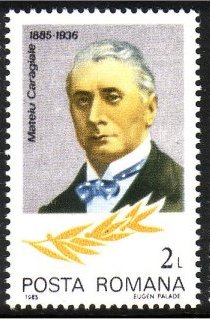Mateiu Ion Caragiale (Romanian: [maˈtej iˈon karaˈd͡ʒjale]; also attributed as Matei or Matheiu; Mateiŭ is an old-fashioned version; March 25 [O.S. March 12] 1885 – January 17, 1936) was a Romanian poet and prose writer, best known for his novel Craii de Curtea-Veche, which portrays the milieu of boyar descendants in the past and after World War I. Caragiale’s style, associated similar to Symbolism, the Decadent commotion of the fin de siècle, and in advance modernism, was an native element in the Romanian literature of the interwar period. In extra late contributions, Caragiale pioneered detective fiction locally, but there is disagreement exceeding whether his undertaking in the arena produced a fixed narrative or just fragments. The scarcity of writings he left is contrasted by their necessary acclaim and a large, mostly posthumous, following, commonly known as mateists.
Also known as an amateur heraldist and graphic artist, the youthful Caragiale published his works sporadically, seeking otherwise to impose himself in politics and pursuing a career in the civil service. He was associated with the Conservative-Democratic Party, and then the People’s League, and ultimately raised controversy by supporting the Central Powers during their pastime of Romania. He afterwards focused upon literature, and, during the late 1920s and to the fore 1930s, published most of his prose texts in the magazine Gândirea.
The illegitimate and radical child of influential playwright Ion Luca Caragiale, he was the half-brother of Luca Caragiale, an protester poet who died in 1921, and the posthumous son-in-law of author Gheorghe Sion. Mateiu Caragiale was loosely affiliated later than Romanian Symbolism, a figure noted for his dandyism, eccentricity and Bohemianism, and, for much of his life, a regular presence in the intellectual circle formed more or less Casa Capșa restaurant. His connections included the controversial embassy figure Alexandru Bogdan-Pitești, cultural animator Mărgărita Miller Verghy, and poet Ion Barbu, who was as a consequence one of his most dedicated promoters.
What do you think of the works of Mateiu Caragiale?
Use the form below to say your opinion about Mateiu Caragiale. All opinions are welcome!
